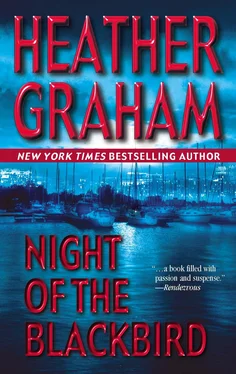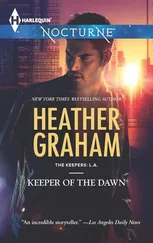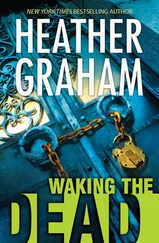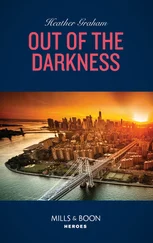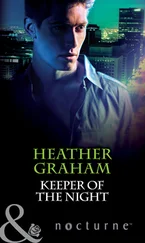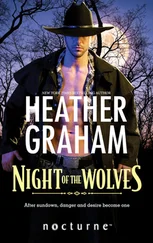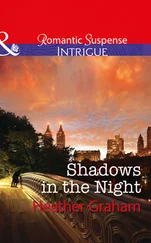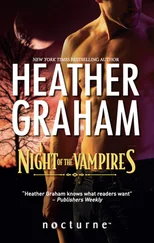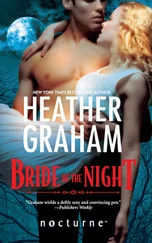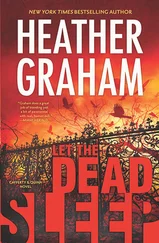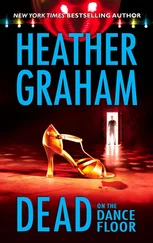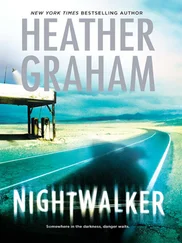Praise for New York Times Bestselling Author
Heather Graham
“Graham shines in this frightening tale. Paranormal elements add zing to her trademark chilling suspense and steamy romance, keeping the pages flying.”
—Romantic Times on Haunted
“Graham’s tight plotting, her keen sense of when to reveal and when to tease…will keep fans turning the pages.”
—Publishers Weekly on Picture Me Dead
“An incredible storyteller!”
—Los Angeles Daily News
“Demonstrating the skills that have made her one of today’s best storytellers, Ms. Graham delivers one of this year’s best books thus far.”
—Romantic Times on Hurricane Bay
“A suspenseful, sexy thriller…Graham builds jagged suspense that will keep readers guessing up to the final pages.”
—Publishers Weekly on Hurricane Bay
“A roller-coaster ride…fast-paced, thrilling…Heather Graham will keep you in suspense until the very end. Captivating.”
—Literary Times on Hurricane Bay
“The talented Ms. Graham once again thrills us. She delivers excitement [and] romance…that keep the pages flipping quickly from beginning to end.”
—Romantic Times on Night of the Blackbird
“With the name Heather Graham on the cover, you are guaranteed a good read!”
—Literary Times
HEATHER GRAHAM
NIGHT OF THE BLACKBIRD
First and foremost, with love for my mother
Violet J. Graham Sherman of County Dublin
for being Irish, for being a great mom.
In memory of Granny Browne and Aunt Amy
who taught me all about banshees and leprechauns—
at least, their versions of the tales.
For my cousin, Katie Browne DeVuono,
for being everything wonderful about the Irish.
For Victoria Graham Davant, my sister, my best friend,
for all that we share from the past and the present.
Prologue
Chapter 1
Chapter 2
Chapter 3
Chapter 4
Chapter 5
Chapter 6
Chapter 7
Chapter 8
Chapter 9
Chapter 10
Chapter 11
Chapter 12
Chapter 13
Chapter 14
Chapter 15
Chapter 16
Chapter 17
Chapter 18
Chapter 19
Chapter 20
Epilogue
Belfast, Northern Ireland,
Summer, 1977
“All right, my son, my fine lad!” his mum said, bursting into his square little room without even knocking. “Your da has made it home, and we are going to the movies!”
The mother was flushed and eager. Her work-worn face was transformed into beauty, for her smile was a young girl’s smile, and brightness touched her eyes. He held his breath, barely able to believe. He wanted to go to the movies so badly. It was the new American film, making its debut downtown. At nine, he spent much of his time in the streets; few promises his parents made came to pass. Not their faults, just the way of the world, and there were many things that were the way of the world, or the way of his particular world, and that was just that, and he understood it. His father had his work, his mother had hers, and they had their time at the pub, as well, with their meetings and such. He was a tough kid, strong for his nine years, street smart and, sadly—as even he was aware—already wary and weary. But this…
It was a science fiction movie. Full of futuristic knights, space vehicles, great battles. The fight for right and, in the end—or so he figured—the victory of right over evil.
He threw down the comic book he was reading and stared at her with disbelief, then jumped up, throwing his arms around her. “The movies! Really? Wow!”
“Comb your hair now, boy. Get ready. I’ll get your baby sister.”
And soon they were walking down the street.
The street was something of a slum. Old brick walls were covered with graffiti. The houses were old, as well, small, drafty, and still required peat fires in winter. But it was a good neighborhood in which to live. There were plenty of dark, secret places in the crevices in the walls; there were gates to be jumped, places to hide.
Here and there, they passed a neighbor. Men tipped their hats. Women greeted them with cordial voices. The boy was so pleased, walking along with his folks. He held his sister’s hand. She was just five, younger than he, with eyes still so bright and alive. She didn’t know yet that the smiles that greeted them were usually grim smiles, that the people were as gray and strained as the sky that ever seemed dark, as the old buildings that always seemed somber and shadowed. She looked up at him, and her smile was real, beautiful, and though they fought at times, though he was a tough kid, a nine-year-old boy, and she just a little girl, he loved her fiercely. Her pleasure and awe in their outing touched him deeply.
“We’re really going to see the movie?”
“We’re really going to see the movie!” he assured her.
Their father turned around, grinning. “Aye, girl, and we’re buying popcorn, as well!”
She laughed, and the sound of her laughter made them all smile; it even seemed to touch the ancient grimed walls and make them lighter.
They reached the movie theater. Some there were their friends, some were their enemies. They all wanted to see the movies, so some of the smiles were a bit grimmer, and now and then his parents exchanged stiff nods with others.
As he’d promised, their father bought popcorn. And sodas. Even candy.
He’d seldom felt closer to his parents. More like a boy. For a few hours he left his own dark reality for a far-off time and place. He laughed, he cheered, he gave his sister the last little kernel of popcorn. He explained what she didn’t understand. He lifted her onto his lap. He watched his mother hesitate, then let her head fall on his father’s shoulder. His father let his hand fall upon her knee.
They were halfway home when the gunmen suddenly appeared.
They had come from one of those dark and secretive places in the wall that the boy had learned so well himself.
The masked man in the front suddenly called his father by name.
“I am he, and proud of it, I am!” his father replied with strength and defiance, pushing his wife behind him. “But me family is with me—”
“Aye, ye’d hide behind skirts!” the second man said contemptuously.
The popping of gunfire, so suddenly and so close, was deafening.
The boy reached for his sister even as he watched his father fall. It had happened so fast, yet it was almost like slow motion in the movies. He could see the terrible end; he couldn’t stop it.
The gunmen had come for his father. But a stray bullet hit his sister, as well. Somewhere in his mind, he knew that the gunmen hadn’t intended it, nor could they afford to regret it. She was simply a casualty of this strange war.
He heard his mother shout his father’s name. She didn’t know as yet that her baby was gone, as well.
The lad held his sister, seeing the blood stain her dress. Her eyes were open. She didn’t even feel pain; she didn’t realize what was happening. She smiled, her bright eyes touching his as she whispered his name.
“I want to go home now,” she said. Then she closed her eyes, and he knew she was dead.
He just held her, in the darkness of the street and the darkness of his life, and he listened to his mother’s screams and, soon, the wailing of the police cars and the ambulances in the shadows of the night.
They had the services for his father and sister on a Saturday afternoon. They had waked them in the house in the old way, and family and friends had come and sat vigil by the coffins. They had drunk whiskey and ale, and his father had been hailed and put upon a pedestal, the loss of his baby sister made into a cause. There was so much press from around the world that many whispered that the sacrifice of the poor wee dear might well have been God’s way in their great cause.
Читать дальше
